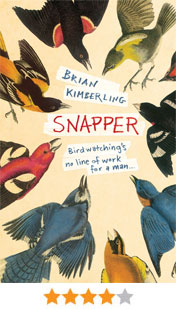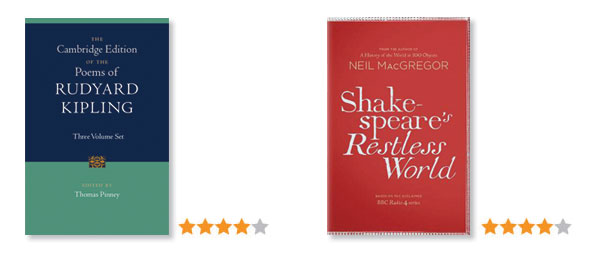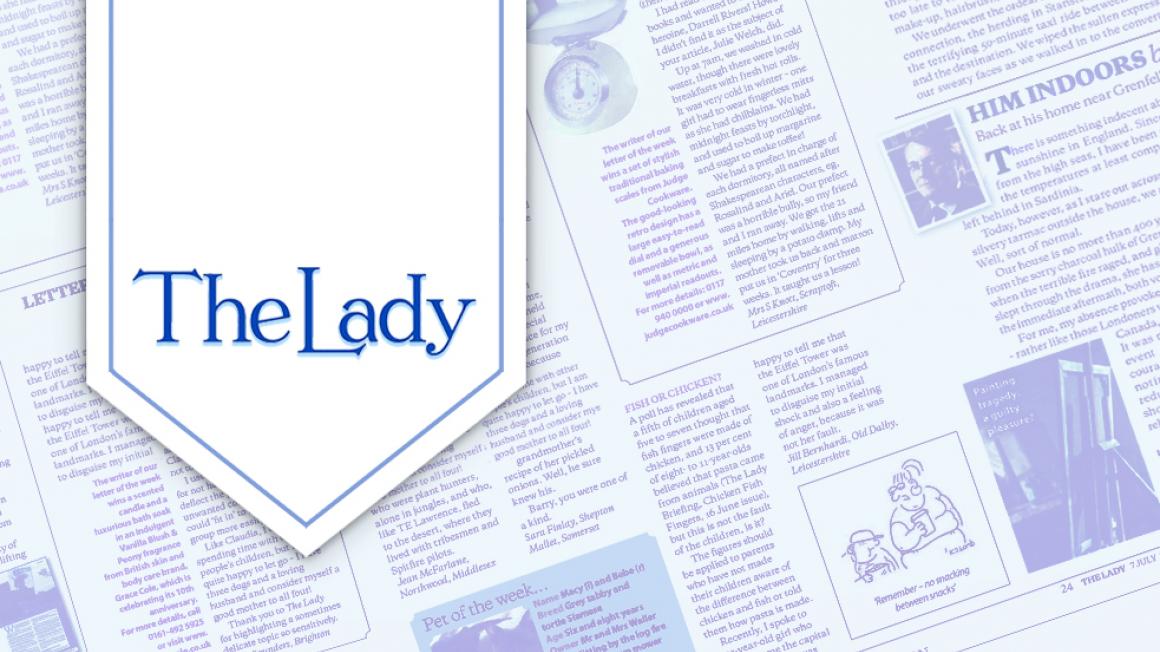Book Reviews: 17 May
OUT NOW
 BURNT ISLAND by Alice Thompson (Salt Publishing, £8.99; offer price, £8.54)
BURNT ISLAND by Alice Thompson (Salt Publishing, £8.99; offer price, £8.54) Alice Thompson’s sixth novel tells the eerie story of an author who ends up on a strange island full of secrets.
Having won a writing fellowship on Burnt Island, Max Long, after several poorly received novels, hopes to write a horror story, which will be his bestseller. He gets taken under the wing of James Fairfax, a famous reclusive author who lives in a beautiful glass house with his daughters, the attractive, mysterious and libidinous Rose and Esther, who can no longer talk following the unsolved disappearance of their mother.
As haunting events and visions begin to worsen, Max’s natural curiosity as a writer compels him to discover the secret of Burnt Island and complete his novel. Not even doppelgängers, which Max perceives to be omens of his death, can make him leave the strange island.
Thompson’s gripping narrative invites the reader to solve the mystery of Burnt Island and the true purpose of Max Long’s fellowship. A dark, compelling novel with strong themes of paranoia and strange eroticism throughout.
Lizzie Greenhalgh
 HARRY: THE PEOPLE’S PRINCE by Chris Hutchins (The Robson Press, £20; offer price, £15)
HARRY: THE PEOPLE’S PRINCE by Chris Hutchins (The Robson Press, £20; offer price, £15)‘It’s very nice to be a normal person for once...’
That’s Prince Harry, currently third in line to the throne, reflecting on life under fire on the bombed streets of Garmsir in Afghanistan, barely 500 yards from Taliban bunkers. It’s come to something when a 28-yearold man feels more ‘normal’ being bombed by the Taliban than he does walking the streets of London.
But that’s Royal life for you – a skewed version of the real thing, which Harry, according to this lively biography, lives as best he can in the teeth of ravening girls, persistent paparazzi and a media who simply cannot get enough of him.
Rumours abound about Prince Harry, who is sometimes known (in an uncrowded field, it has to be said) as the most normal member of the Royal Family, and Hutchins attempts to put many of them to rest.
Harry was ‘very much a love baby’ he notes in Chapter Two. ‘Lady “Kanga” Tryon – a close friend and confi dante of Diana’s – said the Princess told her that Harry was conceived at Windsor Castle at a time when she and Charles were every bit the archetypal couple in love.’ That, he adds, goes a ‘long way to disproving the theory that Charles did not father his younger son’.
And what of the future? Now that he’ll almost certainly never be king, Harry has the ‘freedom to be the Harry Wales he always wanted to be’, says Hutchins.
He still likes music (Beyoncé), he watches comedy programme The Royle Family and wants to be on Big Brother. He’ll leave the Army; he wants to live in Africa. Will he marry Cressida Bonas, replacement for long-term girlfriend Chelsy Davy (who edited Harry’s best man speech at Prince William’s wedding)?
Chris Hutchins doesn’t answer that one… so we’ll just have to wait and see.
Buchan Hamilton
 SNAPPER by Brian Kimberling (Tinder Press, £7.99; offer price, £7.59)
SNAPPER by Brian Kimberling (Tinder Press, £7.99; offer price, £7.59) Nathan gets his job ‘by accident. A sycamore tree landed on the roof of my predecessor’s 4x4 during a thunderstorm’.
The poor chap spends the next six months in a neck brace, so Nathan takes over as a bird researcher in the wilds of Indiana. Of course, he falls in love with birds and with a bird – Lola, who wears ‘floral print dresses that leave her shoulders bare and cling to her hips’.
There are other dangers too, in this avian backwater – twisters that cause ‘great swirling wet wisps of green cloud, wavering green shadows on the ground...’ like ‘God, aged six, got fed up with his spinach’, and bears, and nutters with crossbows.
Kimberling’s charming, coming-of-age story is a delight to read, a funny, graceful book with memorable characters. It’s short, too. A great debut.
Lola Sinclair
BOOK OF THE WEEK
Better than chocolateTake time to digest this collection of anecdotes by a great American humourist, says Jon Canter
 LET’S EXPLORE DIABETES WITH OWLS by David Sedaris (Abacus, £12.99; offer price, £9.99)
LET’S EXPLORE DIABETES WITH OWLS by David Sedaris (Abacus, £12.99; offer price, £9.99)It’s my duty to start with an apology: I’ve read the book – from cover to cover. Virtually without stopping. That’s no way to treat 26 comic pieces by America’s most celebrated living humourist. You don’t review a box of chocolates by eating them all at once. Please savour this collection, bearing in mind that books don’t have a ‘Read by’ date.
‘Humourist’: isn’t that a selfsatisfied pipe-smoker with a bow tie, taking a sideways look at life, while his wife does all the cooking? No. Sedaris has a boyfriend called Hugh and is far too obsessive to have time to be pleased with himself. The index to his Diaries, which he’s kept for 36 years, runs to 280 pages: ‘That certainly wasn’t your position on July 7, 1991,’ I’ll remind Hugh an hour after we’ve had a fight. I’d have loved to rebut him sooner, but it takes a while to look these things up.’
That’s classic Sedaris: in choc terms, neither too bitter nor too sweet, too mushy nor too tooth-cracking. His best subject is himself and, of course, his family: ‘My Dad was like the Marine Corps, only instead of tearing you to pieces and then putting you back together, he just did the first part and called it a day.’ The occasional fictional pieces don’t see Sedaris at his subtle and ironic best. Then again, humourists never exactly write non-fi ction, do they?
When he complains to a French dentist about the gaps between his teeth, she tells him they’re fine and asks why he’d want to change them. ‘Um, because I can floss with the sash to my bathrobe?’ Now, you and I know that no one says ‘Um’ to a dentist. Who cares? We’re not here for reportage. We’re here to be amused and our gaptoothed hero does it royally.
Thrillingly, Sedaris now resides in our very own West Sussex, which he’s manically trying, double-handedly, to purge of litter. The thing he finds most often by the rural roadside, apparently ejected from a car window, is ‘a plastic Diet Coke bottle containing a meticulously folded Mars Bar wrapper’. He imagines that, by putting the wrapper inside the bottle, the driver feels they’ve done their bit – after all, they’ve ‘turned two pieces of trash into one’.
If you see Sedaris, stop your car and help him. The man’s in pain. There’s no great humour without it.
MUST READ
 A jolly good weed
A jolly good weed WEEDS, WEEDING (& DARWIN) by William Edmonds (Frances Lincoln, £20; offer price, £16)
‘Weeds are just plants in the wrong place’ to paraphrase, but for anyone in possession of a garden, now – mid-May – is the time when a spectacular number of ‘plants’ seem to have got themselves into a variety of wrong places.
The cold spring coupled with a few fine days of early summer sun hasn’t helped. It has meant that weed growth has come on incredibly quickly – gardens all over the UK are awash with unusually happy, healthy weeds, so this useful book is very timely. It is written by a man who has worked an allotment for 30 years in the kitchen garden at Monk’s House, the former home of Leonard and Virginia Woolf, and is an eminently practical guide, giving a list of 100 significant garden weeds, explaining how they work and what to do about them.
Edmonds has also included a chapter on the pros and cons of 20 tried and tested approaches to weeding. Useful as well as enjoyable.
PAPERBACKS

VANISHED YEARS by Rupert Everett (Abacus, £8.99; offer price, £8.54) Less straightforward than his earlier memoir, Red Carpets And Other Banana Skins, but with the same brilliance of style and ability to make accounts of his (undoubtedly) wicked behaviour seem like comic jewels. BH
THE A303: HIGHWAY TO THE SUN by Tom Fort (Simon & Schuster, £7.99; offer price, £7.59)
Biography of the ‘holiday’ road that runs west towards Devon and Cornwall, going speedily through the Wallops, then getting jammed up from Stonehenge onwards. Fort explores the history of this ancient route, from the drovers’ paths and Roman roads to the fairs, roundabouts, petrol stations and staging posts that dot its length. Theo Walden
THE SPIRIT OF VENICE by Paul Strathern (Pimlico, £14.99; offer price, £12.99)
A history of one of the world’s most romantic cities, told through the lives of some of its most glamorous and idiosyncratic inhabitants: Marco Polo, Titian, Leonardo da Vinci and Casanova. Perfect holiday companion. TW
ALSO PUBLISHED

THE CAMBRIDGE EDITION OF THE POEMS OF RUDYARD KIPLING (Cambridge University Press, £200; offer price, £190)The complete three-volume edition of Kipling’s verse.
SHAKESPEARE’S RESTLESS WORLD by Neil MacGregor (Allen Lane, £12.99; offer price, £11.69)
Follow-on from his brilliant A History Of The World In 100 Objects, MacGregor presents a portrait of Shakespearian England using a further 20 objects, including daggers, knives and a brass-handled iron fork – an implement only recently introduced to England from Italy.
AN ARTIST’S LEGACY
Peering over the artist’s shoulder A hidden, but crucial, part of Van Gogh’s artistic legacy is his sketchbooks, says Theo Walden
VINCENT VAN GOGH’S SKETCHBOOKS (Folio Society, £445)

Best known for his paintings, Vincent Van Gogh was also a prolific draughtsman. On his death he left more than 1,000 drawings, 10 prints and four sketchbooks.
The pocket-sized sketchbooks, used over a five-and-a-half year period, and currently held in the Van Gogh Museum collection, have just been reproduced by the Folio Society – handsomely bound in a single box.
According to the Scottish artist Archibald Standish Hartrick, who studied in Paris with him, Van Gogh had a ‘habit of carrying a thick stick of red and one of blue chalk in each pocket of his coat… [to] illustrate his latest impressions or theories of art’. Thus, these sketchbooks are filled with notes, doodles of subjects and some finished drawings, many of which served as studies for his major paintings. One of the books shows Parisian scenes, lists of street names and notes to his brother.

Because of their fragility and light-sensitivity, the original sketchbooks are rarely exhibited. These limited-edition facsimiles (only 1,000 have been printed) are therefore fascinating – ‘like peering over the artist’s shoulder’, as Marije Vellekoop, Head of Collections at the Van Gogh Museum notes. A rare glimpse into the private, artistic life of an exceptional painter.


